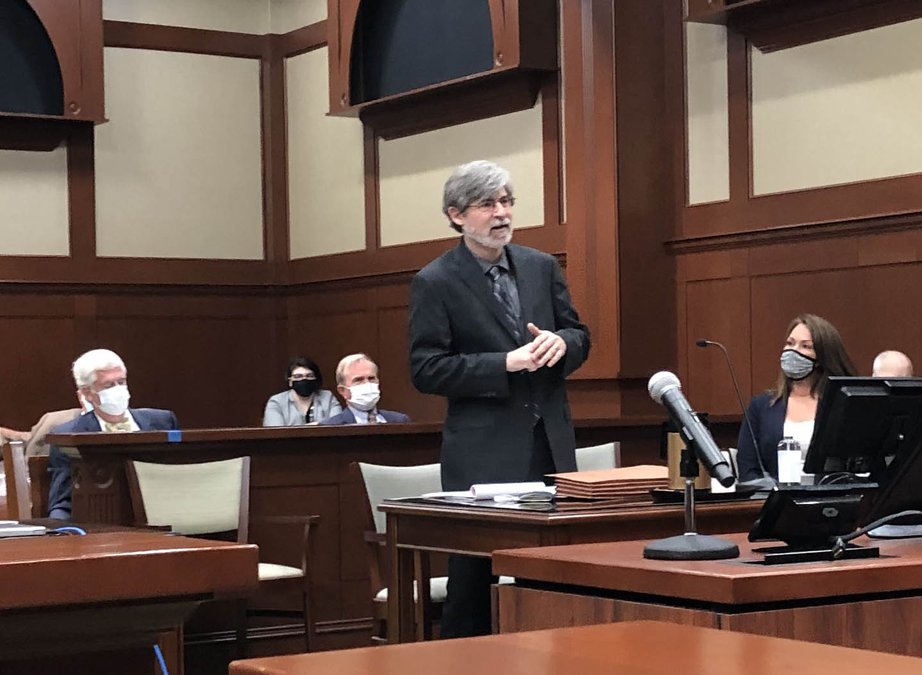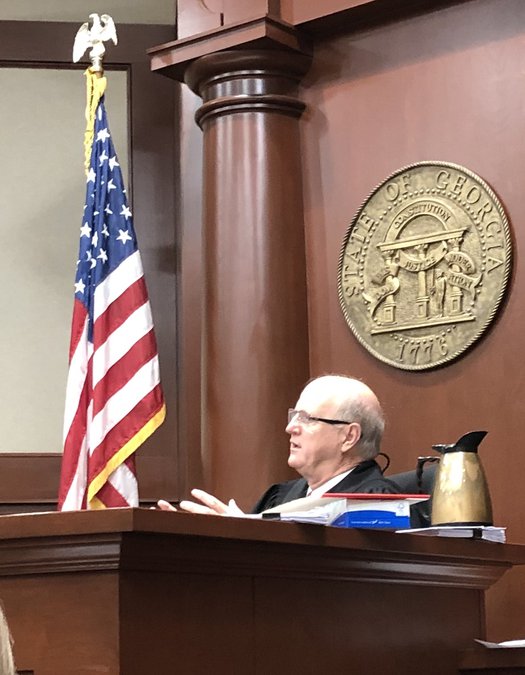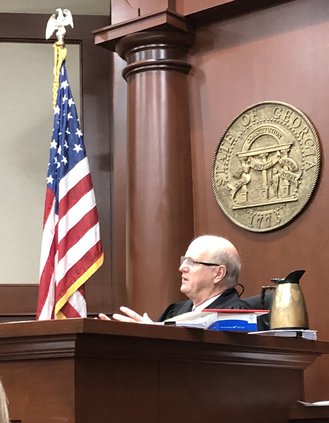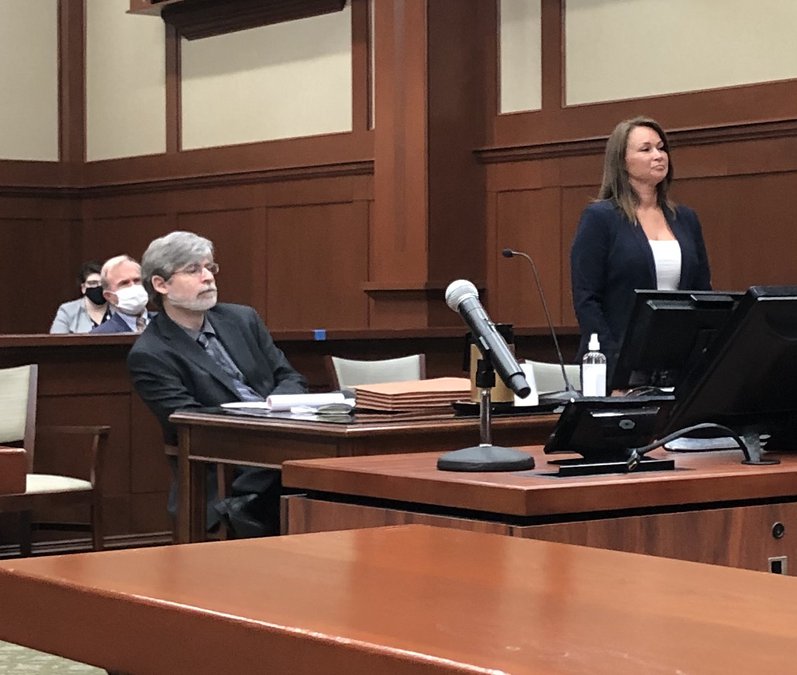COVINGTON, Ga — A Newton County judge said Monday, July 20, he was giving those on both sides of the issue two weeks to justify their legal arguments about the Confederate statue in Covington before he rules whether he will clear the way for its removal.
The action effectively delays the county's planned removal of the statue to comply with the Newton County Commission’s July 14 vote to do so.
Superior Court Judge John Ott also said he hoped either side will appeal his ruling so that a higher court can study the case and further clarify it for the public — which could delay final action on the statue for months, he said.
“I want everybody to be satisfied we’ve hashed out the issues,” Ott said.
The hearing — which was broadcast on a live stream on YouTube — centered on requests for injunctions from county resident Tiffany Humphries and the Newton County and Georgia Sons of Confederate Veterans groups.
They were seeking to stop the removal of the 114-year-old “To the Confederate Dead of Newton County” statue from the center of the Covington Square after the Newton County Board of Commissioners voted 3-2 on July 14 to remove it.
Though county commissioners had occasionally dealt with the issue in recent years, calls for its removal intensified following protests against police shootings of Black Americans in recent months.
After Chairman Marcello Banes said July 7 he would place the statue removal before commissioners on a future agenda, it became a rallying point for both sides of the issue.
Those supporting its removal generally have said they believed it glorified a cause that supported the continued suppression of Black Americans’ rights after they were freed from slavery in 1863.
The other side generally has said they opposed its removal on historical and cultural grounds and because it memorialized their ancestors who were Civil War veterans.
Ott said he wanted to make clear his job was only to rule on the laws surrounding the statue after hearing arguments from both sides and not inject any personal feelings about the issue into it.
He said he interpreted laws related to the case as showing him that a specific damage must have been done to the plaintiff to justify halting the government’s action.
Humphries told Ott she believed the statue represented the sacrifices made by her forefathers who fought for the Confederacy in the Civil War.
She told Ott its removal would affect how she viewed the state law surrounding the removal of statues in Georgia among other things.
However, Ott said those opposing its removal needed to prove how removing the statue would damage them individually in a “concrete” way rather than in an “abstract” way such as affecting their belief in a cause.
Ott also had told those involved in the hearing that both sides needed to address such issues as if Newton County government had sovereign immunity in the case.
Sovereign immunity is the legal concept Georgia effectively held over from English law which basically states a government at any level cannot be sued unless it waives its rights.
Peachtree City attorney Kyle King, representing the Georgia Sons of Confederate Veterans, told Ott he based part of his case for the county waiving its sovereign immunity rights on previous cases in Georgia in which governments waived their rights if certain conditions were met, such as performance of an illegal act.
However, Ott repeatedly questioned King about the relevance of case law he cited, such as one which may have raised the issue of waived sovereign immunity but ultimately ruled in favor of keeping it intact.











